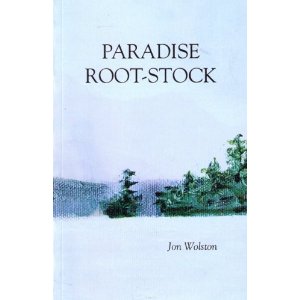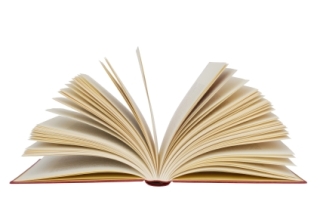Physician Poetry
 By Dr. Jon Wolston
By Dr. Jon Wolston
“Bitch is... we’re all close.”
When I heard a patient speak those words years ago, something happened to me that I still don’t fully understand. I felt like I had just been bestowed a gift in that moment, a gift that had to somehow remain unspoken about between us, but that nevertheless deserved to be acknowledged more widely somehow and eventually recognized publicly in some sense.
My outpatient practice began to take on an added dimension of “word mining” so to speak. The enduring value of certain words in and of themselves seemed to blossom overnight, yet the nature of their power remained mysterious to me. I couldn’t deny the potency of this experience, but I was still at a loss as to how to account for it except that it reflected some aspect of an intimate moment.
Eventually I learned about the tradition of “found poetry” and began to write what I heard in poetic format. I looked into poetry therapy as an adjunctive treatment modality, because I could sense its transformational heft. The National Association for Poetry Therapy is a wonderful organization, highly recommended, but it still wasn’t quite what I was after. Meanwhile, the poems continued to appear. Would they continue to emerge or would they mysteriously wane, like so many of the other things we hold precious? In a way I had difficulty claiming sole authorship. It seemed like the intimate moment was the author and I the transcriber.
Fortunately, I signed up for Dr. Julie Silver’s course in 2007, which was a godsend. Here were established authors of all stripes with tales to tell, professionals from all facets of the publishing world, and bemused newbies opening to the power of words. Julie helped me accept that I was evolving into a physician-writer and that I had good company among other emerging practitioners of this art. I’ve enjoyed keeping in touch with many of the participants since. One lasting understanding that I gained was that any book you see reflects the work of many different individuals, not just the author. Maybe this is a lesson of particular value to physicians.
Soon I began to attend all the poetry readings I could muster in my hometown, dragging friends along whenever possible. I met some inspiring poets, particularly on the nearby Brown campus, and corresponded with those who struck a chord and were kind enough to respond to me. I joined the writing group at the venerable Providence Athenaeum, an invaluable source of support and former hangout of Edgar Allen Poe. I started compiling first email lists and later blogs to send out poems for critique. Readings came by invitation. My favorite is probably the Super Bowl halftime reading my son Chris requested. You had to be there.
With the help of my good friend and publisher Bill Connell, I put together a manuscript of a poetry collection, “Paradise Root-stock,” printed in April 2008 . Bill’s advice was, “Publish when you feel like you have a certain ‘body of work’ that you’d like to represent.” In this collection I look to capture the sense of awe I still feel about where this all came from. The process still mystifies me. The title comes from a Galway Kinnell poem called “The Stone Table.” He names the most common apple-tree cultivar in New England as emblematic of his tenacity in the face of our notoriously tough growing conditions. The title also alludes to what is probably my favorite poem in the collection, called “Nor’easter”:
Poems are windfall
of the orchards of my soul. . .
some bruised some glowing,
all with secret seeds
ready to be swallowed up
when God is hungry.
In hindsight, my friend the historian Dr. Doug McVicar was also a big help in getting PR-S into print. He issued a “dare” in 2007 to see which one of us would publish first! I think physicians thrive on healthy competition. If you’re feeling a little stuck with your writing, consider old-fashioned dares.
Four of the poems in PR-S were selected by the Poetry Society of New Hampshire for inclusion in their 2010 Poets’ Guide:More Places, More Poets. In doing promotion, I found that smaller independent bookstores love to have you read for them to help draw business. They are also more likely to be interested in stocking your poetry book afterwards than a chain or large bookstore would. Two of my all-time favorite bookstores: http://www.lexingtonbooksandco.com in Virginia and http://www.bayswaterbooks.com in New Hampshire. Both these wonderful venues allow an intimacy to develop, on account of their size, that is distinctive, and particularly conducive to poetry readings.
For physicians interested in developing as writers, Dr. Julie Silver’s Harvard course is invaluable and highly recommended.
About: Dr. Jon Wolston is a psychiatrist who transitioned to retirement by finding unexpected pleasure and meaning in writing poetry and publishing it, both in print (“Paradise Root-stock” 2008) and online at http://jonwolston.wordpress.com.
 Email This Article tagged:
Email This Article tagged:  Dr. Jon Wolston,
Dr. Jon Wolston,  Medical Writing,
Medical Writing,  Physician Book Publishing |
Physician Book Publishing |  Jan 6, 10:30 AM
Jan 6, 10:30 AM 







